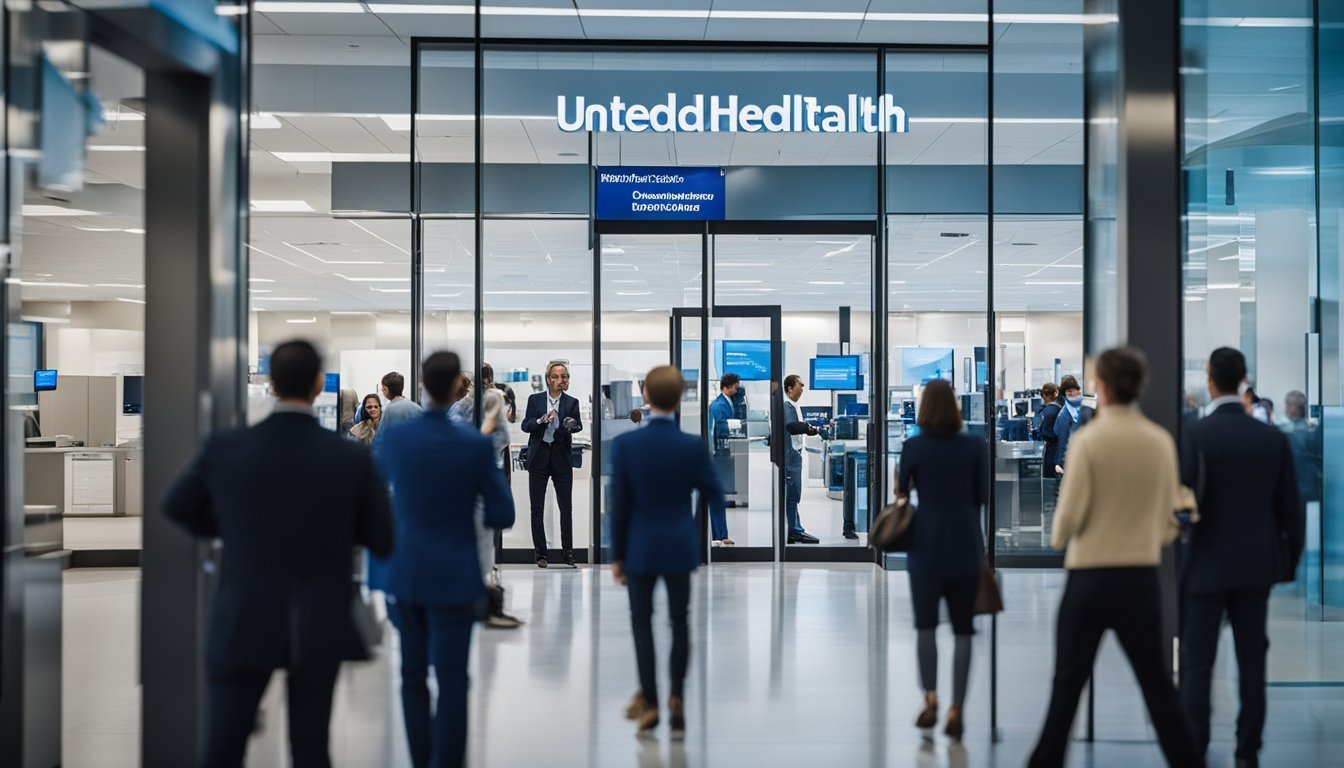UnitedHealth Tech Unit’s Rivals Say New, Post-Hack Customers Are Staying: Market Shift Persists After Cyberattack

UnitedHealth’s tech unit Change Healthcare faced a big problem earlier this year. A cyberattack in February shut down its services. This caused chaos in the healthcare system. Many hospitals and other customers had to switch to other companies for help.
Now, some interesting news has come out. Smaller rivals to Change Healthcare say they are signing longer-term contracts with customers who switched after the hack. Companies like Waystar, Availity, and Inovalon have picked up new business. These firms help with things like billing and payments in healthcare.
This shift shows that some customers may be rethinking their tech choices. They want to make sure their systems keep running even if one company has problems. It’s a big change in how healthcare groups think about their tech support.
Key Takeaways
- Change Healthcare’s rivals are keeping customers who switched after the February hack
- Healthcare practices are signing longer-term contracts with new tech providers
- The cyberattack has led to shifts in how healthcare groups manage their tech support
Overview of UnitedHealth Tech Unit’s Security Breach
UnitedHealth’s tech unit Change Healthcare faced a major cybersecurity attack in early 2024. The incident disrupted healthcare services and exposed sensitive data, affecting millions of Americans.
Timeline of the Cybersecurity Incident
The hack at Change Healthcare occurred on February 12, 2024. Hackers used stolen login credentials to gain remote access to the network.
UnitedHealth confirmed that the Blackcat ransomware group was behind the attack. This group is known for targeting large organizations.
The company took immediate action by shutting down its systems to prevent further damage. This led to widespread disruptions in healthcare services across the United States.
Impact on UnitedHealth Customers and Services

The breach had far-reaching consequences for both UnitedHealth and its customers. UnitedHealth’s CEO revealed that hackers potentially stole data from a third of Americans.
The attack disrupted various healthcare services, including:
- Electronic payments to healthcare providers
- Prescription processing at pharmacies
- Claims submissions and approvals
Many hospitals and healthcare providers had to switch to manual processes, causing delays in patient care and financial transactions.
The incident also led some customers to seek services from Change Healthcare’s smaller rivals. These competitors reported signing longer-term contracts with new clients after the breach.
Market Response to UnitedHealth’s Recovery Efforts
The market has shown mixed reactions to UnitedHealth’s efforts to bounce back from the recent tech unit hack. Competitors and consumers have responded in different ways to the company’s recovery strategies.
Competitors’ Analysis
UnitedHealth’s rivals have reported signing longer-term contracts with hospitals and other customers who switched from Change Healthcare after the hack. This suggests that some clients are choosing to stay with alternative providers even as UnitedHealth works to restore its services.
Smaller competitors have seized the opportunity to expand their market share. They have invested in improving their own systems and customer service to retain the new clients gained during UnitedHealth’s downtime.
UnitedHealth faces a challenge in regaining lost customers. The company must prove its improved security measures and service reliability to win back trust in the healthcare technology sector.
Consumer Confidence and Brand Loyalty
The hack has impacted consumer confidence in UnitedHealth’s tech services. Many customers have expressed concerns about data security and service stability.
UnitedHealth has implemented new security protocols and improved communication strategies to rebuild trust. The company has offered incentives to retain existing customers and attract new ones.
UnitedHealth’s stock performance has shown resilience, with shares rising despite the hack’s financial impact. This suggests that investors maintain confidence in the company’s long-term prospects and recovery efforts.
Brand loyalty among long-term customers has helped UnitedHealth weather the storm. Many clients have chosen to stay with the company, citing its history of reliable service and the temporary nature of the disruption.
Retention Strategies for New Post-Hack Customers
Companies are taking steps to keep customers who switched after the cyberattack. They focus on better security and improved support to build trust and loyalty.
Enhanced Security Measures
Smaller rivals to UnitedHealth’s tech unit are boosting their security to keep new customers. They’re using advanced encryption for data protection. Regular security audits help find and fix weak spots quickly.
These firms are also getting third-party security certifications. This shows their commitment to safety. They’re training staff on the latest cybersecurity best practices.
Many are setting up real-time monitoring systems. These detect and stop threats fast. They’re also creating detailed disaster recovery plans. This ensures quick service restoration if problems occur.
Customer Support and Outreach
Companies are improving their customer support to retain new clients. They’re offering 24/7 helplines for quick issue resolution. Some are creating dedicated support teams for post-hack customers.
They’re sending regular updates about system improvements. This keeps customers informed and builds trust. Many are holding webinars to explain their security measures.
Some firms are offering personalized onboarding for new clients. This helps them adjust to the new systems smoothly. They’re also gathering feedback to address specific concerns.
Longer-term contracts are being signed with new customers. This shows growing trust in these services. Companies are also creating loyalty programs to encourage customers to stay.






